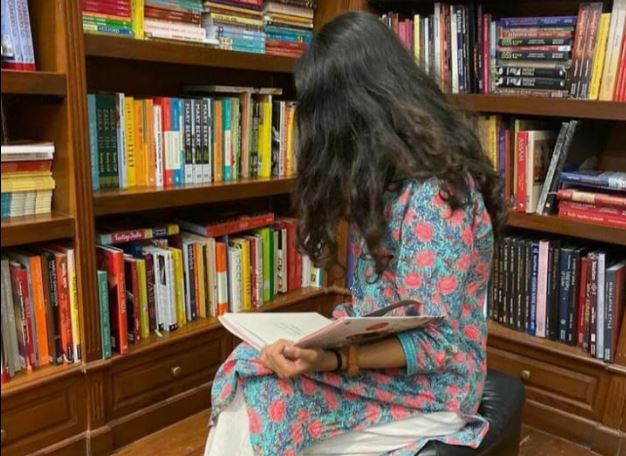Dr. Jintu Sarma, Sadhana Goswami
Prof. S.R. Ranganathan, a name synonymous with library science, stands as a towering figure in the annals of intellectual history. Born in India in 1892, his journey from mathematician to revolutionary librarian is a testament to his intellectual curiosity and unwavering dedication. Ranganathan’s contributions to the field are so profound that he is often hailed as the ‘Father of Library Science.’
Initially, Ranganathan’s academic pursuits were rooted in mathematics. He excelled in the subject and embarked on a career as a mathematics professor. However, destiny had a different plan. When appointed as the librarian of the University of Madras, a world of untapped potential opened before him. This unexpected role ignited a passion for organizing and disseminating knowledge, a passion that would define his legacy.
Ranganathan’s most significant contribution lies in his formulation of the Five Laws of Library Science. These laws, simple yet profound, serve as the bedrock of modern librarianship. They emphasize the book as an instrument of learning, the library as a growing organism, the user’s time as a valuable resource, and the importance of the library as a living entity in the life cycle of a book. These laws are not merely theoretical constructs but practical guidelines that have shaped library services worldwide.
On August 12, National Librarian’s Day is celebrated to honour his significant contribution to the Indian knowledge system.
Libraries, often perceived as quiet repositories of books, have evolved into dynamic hubs of information, learning, and community engagement. Their role in rural development and fostering digital literacy is particularly significant. In regions characterized by limited resources and infrastructure, libraries emerge as beacons of knowledge, empowering individuals and driving progress.
Rural development is a multifaceted challenge that necessitates a holistic approach. Libraries contribute to this endeavour by providing essential information resources. Agricultural guides, health manuals, and business development materials can equip farmers, entrepreneurs, and healthcare providers with the knowledge to improve their livelihoods. Moreover, libraries can serve as platforms for skill development, offering workshops on topics like financial literacy, entrepreneurship, and digital marketing. By fostering knowledge-sharing and capacity-building, libraries catalyze economic growth and reduce rural-urban disparities.

In the digital age, bridging the digital divide is paramount for inclusive development. Rural libraries play a pivotal role in this process by offering access to computers, the internet, and digital literacy training. These facilities empower individuals to harness the potential of technology for education, employment, and healthcare. Online resources can provide farmers with access to weather forecasts, market prices, and agricultural best practices. Students can explore a vast array of educational materials and prepare for competitive exams. Telemedicine services can be facilitated, improving healthcare accessibility in remote areas. By equipping rural communities with digital skills, libraries contribute to their integration into the global knowledge economy.
Libraries serve as community centres, fostering social cohesion and cultural enrichment. They organize book clubs, storytelling sessions, and film screenings, promoting literacy and critical thinking. These activities create spaces for dialogue, exchange of ideas, and personal growth. Libraries can also collaborate with local organizations to address specific community needs, such as women’s empowerment, youth development, and environmental conservation. By serving as platforms for community engagement, libraries strengthen the social fabric and build resilience.
Libraries are indispensable assets for rural development and digital literacy. By providing information, skills, and technology, they empower individuals and communities to overcome challenges and seize opportunities. As society becomes increasingly interconnected, the role of libraries in bridging the digital divide and fostering inclusive growth will only become more critical. Investing in rural libraries is an investment in the future of our communities.
One of the most crucial roles of libraries in India is in the realm of education. With a vast and varied student population, libraries provide a platform for students to access a wide range of books, journals, and other resources. These resources are essential for academic research, enhancing comprehension, and fostering a lifelong love for learning. Moreover, libraries in India have been instrumental in promoting literacy, especially in rural areas where access to educational institutions is limited.
Beyond education, libraries play a pivotal role in preserving India’s rich cultural heritage. They house invaluable collections of manuscripts, historical documents, and rare books that offer insights into the country’s past. These resources are essential for scholars, researchers, and historians to understand the complexities of Indian history and culture. By preserving and disseminating this knowledge, libraries contribute to the nation’s cultural identity.
As a nation with a rich history, diverse cultures, and a burgeoning population, libraries serve as vital institutions that contribute to the overall growth and progress of the country. India once hosted the world’s largest library containing over nine million books, which was attacked by Khilji and burned for three months. This example, however, is enough to understand the significance of the Indian knowledge system and its legacy.

In an era dominated by information overload, libraries act as filters, helping people discern credible information from misinformation. They provide access to a curated collection of resources, ensuring that users have reliable and accurate information. This is particularly important in India, where the digital divide remains prevalent, and many people rely on libraries for their information needs.
While the digital age has brought significant changes in the way information is accessed and consumed, the importance of libraries has not diminished. In fact, libraries have adapted to the changing landscape by incorporating digital resources into their collections and services. They now offer access to online databases, e-books, and digital archives, making information more accessible than ever before.
As India continues to grow and evolve, the importance of libraries is also increasing. In line with the global scenario, libraries must adopt modern approaches for the benefit of readers. In India, the National Library of India, Kolkata, under the Ministry of Culture, Government of India, is making all possible efforts towards the conservation and preservation of valuable books and manuscripts, which is a significant move for future generations.
(Published on the occasion of National Librarian’s Day)




